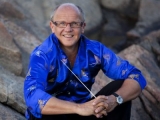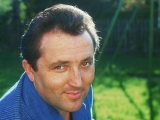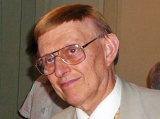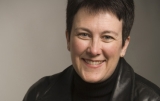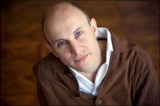Herr Gimeno, Ihr erstes Jahr als Chefdirigent beim ‘Orchestre Philharmonique du Luxembourg’ haben Sie hinter sich. Welche Bilanz ziehen Sie, was sind die Eindrücke?
Das OPL ist ein äußerst rezeptives, offenes und sehr flexibles Orchester. Die Musiker sind begierig darauf zu arbeiten und sich verbessern. Das sind natürlich für einen Chefdirigenten die besten Voraussetzungen. Die Musiker wissen ganz genau, dass sie hart an sich arbeiten müssen, wenn sie gegen all die Ensembles von Weltklasse aus Wien, Berlin, Dresden, London oder New York bestehen wollen. Read More →
Christian Lindberg, You once said that the trombone is the instrument of the last century. Do you still think that it’s the instrument of the current one?
I don’t think so. I’m a little bit disappointed. You see, I have done my work with the trombone and I’m going now into different areas. Of course, I will continue premiering trombone concertos. In 2017, I will premiere my concerto No. 100 by Per Egland, the Swedish composer. But generally things are not going like I would have hoped. I had some masterclasses with really talented young trombone players. And I encouraged them very strongly to follow and try making solo careers. But everyone goes to orchestras (he laughs). Read More →
Barbara Wunderlich, Sie waren zwei Jahre alt, als Ihr Vater tragisch verunglückte und verstarb. Haben Sie noch irgendwelche konkrete Erinnerungen an ihn?
Mehr oder weniger konkret. Ich kann mich vor allem an diese so angenehme Stimme erinnern und, dass er mich im Arm gehalten und in den Schlaf gesungen hat. Es gibt private Tonbandaufnahmen, wo er mir ein Mikrophon hinhält und versucht, mich zum Singen zu bringen: « Mach mal Lala!“, allerdings mit geringem Erfolg. Read More →
Duos für Violine und Violoncello gehören nicht zum gängigen Repertoire. Wie kam dieses Programm zustande?
DMS: Wir hatten 2003 die Ravel-Sonate zusammen gespielt, und das funktionierte so gut, dass wir uns immer wieder neue Stücke vorgenommen haben, und diese CD ist eigentlich das Resultat einer zwanzigjährigen Entwicklung. So lange nämlich kennen wir uns. Read More →
Peter Feuchtwanger wurde am 26. Juni 1939 in München geboren, lebte und unterrichtete aber viele Jahrzehnte in London. Zu seinen Klavierlehrern gehörten Edwin Fischer und Walter Gieseking; sein entscheidender musikalischer Einfluss kam jedoch durch Begegnungen mit Clara Haskil. Zudem studierte er Komposition, Dirigieren, Philosophie sowie indische und arabische Musik. Yehudi Menuhin bat ihn 1966, ein Werk für das Internationale Musikfestival in Bath zu schreiben; es wurde von Menuhin und Ravi Shankar uraufgeführt. Read More →
Nach vielen Orchesterwerken und Kammermusik haben Sie mit ‘Cold Mountain’ Ihre erste Oper geschrieben. Wie ist es zu diesem Projekt gekommen?
Ich habe einfach gedacht, dass es jetzt an der Zeit wäre, etwas anderes zu tun, eine neue Herausforderung zu suchen. Ich hatte mich viele Jahre lang auf Instrumentalmusik konzentriert und nun einfach Lust, eine Geschichte mit visuellen Elementen zu erzählen. Read More →
Herr Kolber, die ‘Schumanniade’ ist ein ganz besonderes Festival und findet auf dem sogenannten ‘Mutferter Haff’, also dem ‘Moutforter Hof’ statt. Was ist das genau?
Ungewöhnlich ist der Ort, an dem das Festival stattfindet. Die Konzerte finden effektiv in der Pferdemanege des Hofes statt. Diese wird mit Holzplatten ausgelegt und so hergerichtet, dass jeder Zuhörer die Musik genießen kann. Read More →
Mister Goerner, some of the most famous Argentinian pianists, you included, live in Europe. Why?
I think this happens because we are simply too far, geographically, from the European music centres. It would be very unpractical to have to go back and forth all the time! This is sad, for ours is a hugely musical country, and we can be surely proud to have one of the most beautiful halls in the world, the Teatro Colon. Those artists who experience this hall for the first time always do so with amazement. Read More →
Es ist gigantisch. In 65 Metern langen Regalreihen lagern fünf Millionen CDs, SACDs, DVDs und Bu-ray Discs, und das einzige, was man hört, ist der Klang der Klimaanlage. In Poing bei München befindet sich ‘Naxos Global Logistics’, das weltweit größte Klassik-Musiklager der Welt, von wo aus die Platten von ca. 200 Labels in alle Welt verschickt werden. Read More →
Herr Koopman, Sie geben ein Dutzend Konzerte im Monat, Sie unterrichten, halten Konferenzen… Haben Sie eigentlich Zeit für nicht-musikalische Dinge?
Doch! Ich bin noch Großvater und habe vier Enkelkinder, die mit mir spielen wollen. Read More →











